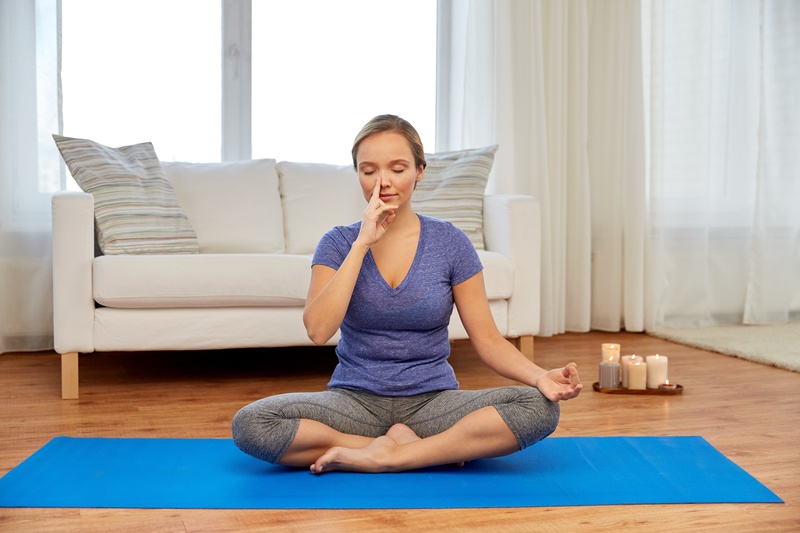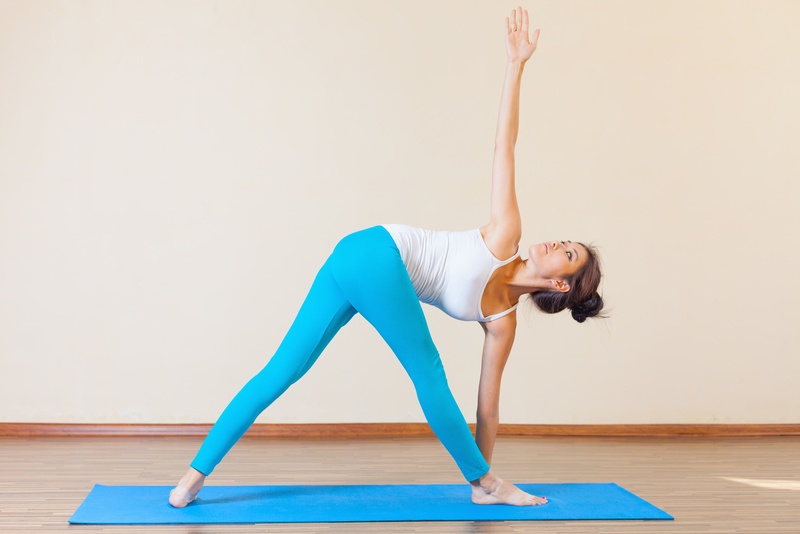How to Stay Calm and Grounded During the COVID-19 Crisis

“Each day, we’re exposed to news about the Coronavirus that makes us feel fearful, anxious, and unsettled. Despite the darkness of this time, perhaps we could consider the universe has orchestrated this event to allow us to spend more time with our loved ones. This is an opportunity to work on our relationships and take some much needed time to rest and reset.
Of course, a pandemic is not without concerns. But in the grand scheme of things, perhaps this is an opportunity to reprioritize what truly matters to us in life. We will get through this together, and come out of this crisis stronger by learning how to surrender, trust, and minimize our stress and anxiety— which will ultimately benefit us in all future situations.”
– Nirmala Raniga, Founder and Director
Paradise Valley Healing Center
As the COVID-19 pandemic rises, for many of us, our everyday routines have been disrupted. It can be difficult to readjust to this “new normal” of staying at home and isolating from the community. All aspects of health: physical, social and mental wellbeing are affected during this confusing and stressful time.
These major life changes can negatively affect the mind, body, and soul, slowly chipping away at all aspects of personal welfare. When left untreated, this emotional and mental stress can manifest as physical health ailments, and compromise our best defense against any virus: The immune system.
These six coping strategies can serve as a foundation in times of crisis, to keep you calm, nourished, and centered when your body needs it most.
1. Prioritize Restful Sleep

Adequate, restful sleep plays an important role in a happy mood, mental focus and clarity, and reducing stress and anxiety.
Anxious thoughts during uncertain times are sleep’s worst enemy. To avoid the endless tossing and turning, here are some ways to prepare your body for a good night’s rest:
– Commit to rising and falling asleep at the same time each day.
Perhaps you’re working from home right now or it’s likely your regular routine has been impacted in some way. Keeping your body on schedule with your usual working sleep/wake hours can help keep your energy levels up, your mood optimistic, and promote an overall stronger sense of wellbeing— which is key for getting through difficult situations and uncertainty.
– Practice good sleep hygiene and give your bedroom a “cozy” makeover.
Use your bedroom only for rest. Make your bedroom as comfortable as possible to encourage deeper relaxation. Weighted blankets can help reduce anxiety, meditation apps have relaxing sleep sounds to wind down with, and a few drops of lavender essential oil on your pillow will have you asleep in no time.
– Avoid eating three hours before bed.
Always have your last meal or snack at least three hours before bed to avoid disruption to your sleep cycle. Avoiding eating close to bedtime also supports immunity, as your body’s energy is conserved for performing “housekeeping” tasks, such as cellular repair and regeneration, as you sleep (opposed to using that energy for digesting food).
Lack of sleep can lead to mental health conditions, such as depression, panic attacks, and anxiety. Having a good sleeping pattern nourishes your entire body, and can help greatly reduce stress to the nervous system.
2. Meditation and Mindfulness

Mindfulness, coupled with meditation, is about purposely focusing your attention on this moment, right now: the present. It’s all about accepting the present moment without judgment about what is. Mindfulness is a tool that can greatly help you cope with stress and anxiety, as everything is always okay when we stop and breathe in the present moment.
By practicing mindfulness and meditation, you can savor life’s pleasures as they happen. For example, the smell of your coffee brewing in the morning, or the savory taste of that delicious home-cooked soup you made. When these moments are acknowledged, it’s hard not to constantly delight and feel gratitude for life’s little pleasures.
With mindfulness and meditation in your stress coping toolkit, you may find you’re not as likely to get caught up in worries about things to come, or regrets over things that were. Yes, the present moment is a powerful place to be.
3. Practicing Breathing Exercises as Soon as Stress or Anxiety Hits

When your breath is steady, so are your thoughts. This is why a simple three-minute breathing exercise can be so helpful for calming racing thoughts and painful or challenging emotions.
There are many different breathing exercises that you can do to help calm your mind. One that is a particularly useful technique to help calm anxiety is alternate nostril breathing, also known as Nadi Shodhana in Sanskrit. By practicing this form of breathing when stressful situations arise, you can immediately feel your body relaxing and becoming calmer.
4. Continue to Move Your Body Daily (Even When Stuck Indoors)

Movement is essential for releasing feel-good chemicals in the body. Even though gyms, yoga studios, and fitness centers are closed right now, social distancing measures still allow you to get out into nature and do a hike, run, or practice yoga outdoors. You can also find all kinds of fitness classes for free online. As long as you are within the two meter or six-foot rule, maintaining space between you and the next person, you could even be participating in outdoor activities with friends.
Bonus Tip: After you have completed your yoga or exercise session, try to give yourself a few minutes to experience the post-movement bliss of moving your body. Rather than pulling out your phone or getting back to work, take a savasana on your yoga mat or simply sit in five minutes of meditation to just enjoy and soak up the mind and body benefits of movement.
5. Proper Nutrition is Key for Protecting Your System Against Viruses

Not only does a nutrient-rich diet full of plant foods protect against all kinds of health ailments, but preparing healthy meals is also an effective way to distract yourself and help you practice your mindfulness skills. An easy way to ensure you are getting the nutrition you need is to eat a wide variety of fresh fruit and vegetables. Personally, I recommend following the Ayurvedic principle of incorporating the “seven colors” into your meals each day.
A wide variety of fibrous plant foods is needed to maintain a healthy and diverse gut microbiome, which is your strongest defense against illness and disease. Approximately 80% of your immune system cells are found in the gut. This is why taking measures to ensure proper nutrient absorption, digestion, and elimination forms the foundation for good health.
To assist in supporting digestion and calming inflammation, cook your meals with fresh garlic, ginger, and turmeric. Drinking warm or room temperature liquids (such as golden turmeric milk, herbal tea, or hot water with lemon and ginger) can also be helpful for aiding digestion.
With dine-in restaurants not being an option right now, rather than relying on delivery or take-out meals, now is a great opportunity to try new healthy recipes and prioritize your nutrient intake. Capitalize on these moments to spend quality time with your family and make some lasting memories that strengthen your relationships.
6. Virtual Connection & Lots of Laughter

Healthy relationships and connections can allow us to be the best version of ourselves, discover who we really are, nurture us, and help us grow. Healthy connections enrich our lives, reduce stress in trying times, and promote longevity. As human beings, we feed off healthy connections and now is the perfect time to nurture the ones we have.
Remember: social distancing does not have to mean social isolation. In the virtual world we live in, it is easier than ever to keep in touch with friends and family through video chats, calls, and texting. Platforms like Zoom, Whatsapp, Facetime, Skype, and Netflix party make it convenient and easy to stay connected from a distance.
By making a conscious effort to regularly connect with friends and family who uplift you, you open your heart to others. Setting the intention to enjoy the present moment and laugh more is truly nature’s best medicine in times of crisis.
These strategies for coping with the COVID-19 pandemic considers wellness as a holistic approach. Although we need to support the mind, body, and spirit especially in times of crisis, adopting these practices as part of your regular routine will help you become more resilient, healthier, and happier — and take you “back to the basics” of true wellbeing.
